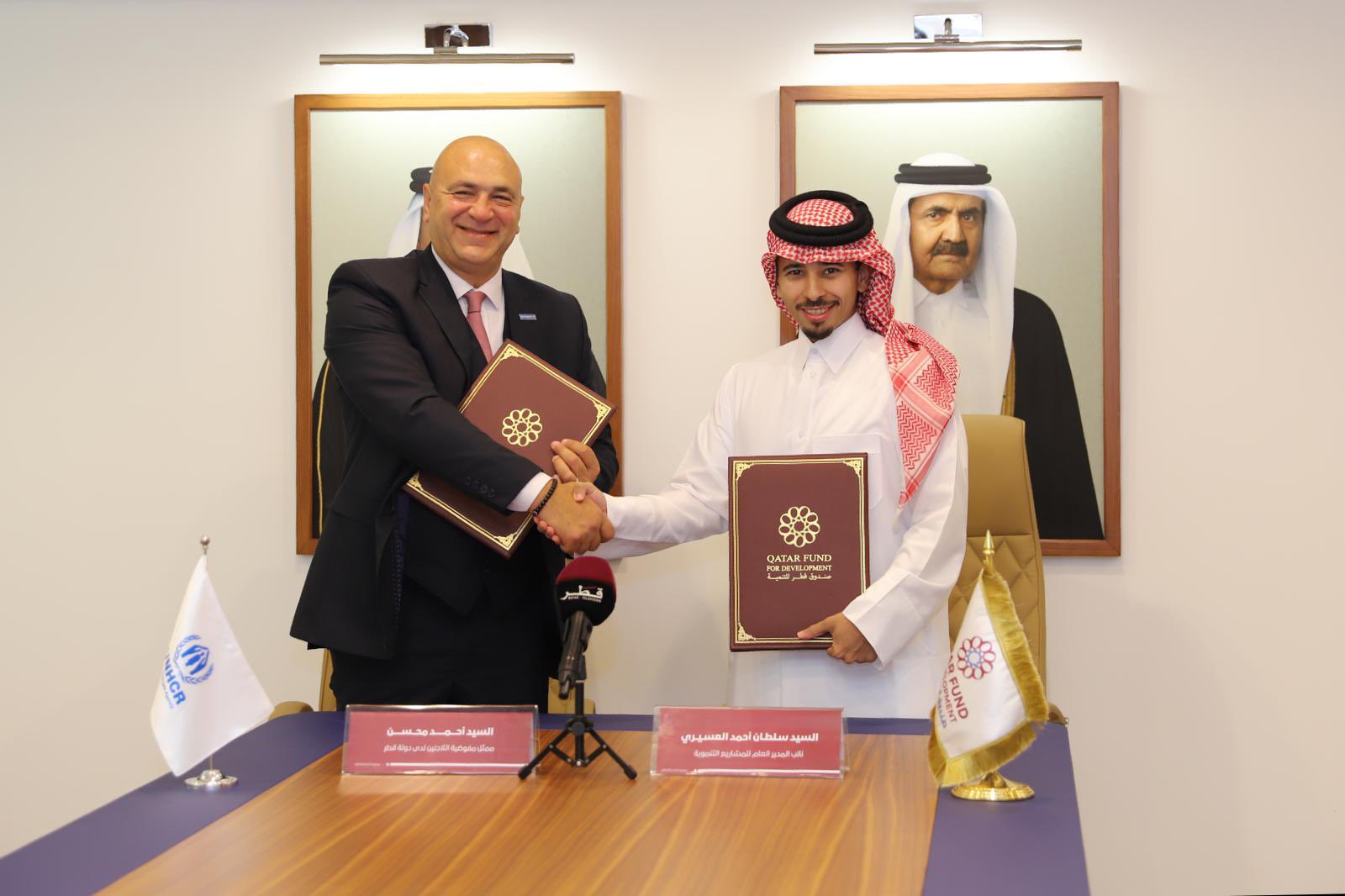The Qatari government’s contributions to UNHCR since 2010 have exceeded $354 million.
The Qatar Fund for Development (QFFD) and the United Nations Refugee Agency (UNHCR) signed an $8 million multi-year agreement on Tuesday to support the agency’s global response to displacement crises.
The signing took place in Doha between QFFD’s Deputy Director General for Development Projects, Sultan Al Aseeri, and UNHCR Representative in Qatar, Ahmed Mohsen.
“Through our partnership with UNHCR, we aim to address their increasing humanitarian needs, in addition to the communities hosting them. This agreement is a testament to our shared values and commitment to ensuring that essential rights are met for all refugees,” Al Aseeri said.
Mohsen described the agreement as a “generous contribution from QFFD” and “a cornerstone of support for UNHCR’s mission.”
“It allows us to be agile and responsive in unforeseen emergencies and sustain efforts in protracted situations that may receive less media attention but are equally critical,” the UNHCR official added.
The Qatari entity has supported UNHCR’s efforts since 2018, especially in providing aid to refugees from Syria, displaced Iraqis, Rohingya refugees and internally displaced Yemenis and Afghans.
During the Doha Forum in 2018, QFFD and UNHCR signed a $16 million multi-year core contribution agreement for 2019-2020. It was then renewed for 2021-2022 for $8 million.
The Qatari government’s contributions to UNHCR since 2010 have exceeded $354 million.
Qatar was also a key supporter of UNHCR’s efforts in Afghanistan following the Taliban takeover in 2021. At the time, Qatar led history’s largest airlift of people and successfully evacuated more than 80,000 Afghans and foreigners from the country.
Besides its evacuation efforts, Qatar also backed UNHCR’s efforts by assisting in aid delivery to Afghanistan’s population.
With the help of QFFD, UNHCR can ensure a timely response to more than 110 million forcibly displaced people around the world.
The three countries that account for 52 percent of the entire refugee population include Syria, Afghanistan and Ukraine, according to UNHCR.
Syria alone accounts for 6.5 million refugees, followed by Afghanistan with 6.1 million, and Ukraine with 5.9 million.
At least 43.3 million refugees worldwide are children below the age of 18 and a total of 1.9 million children were also born as refugees.
Iran and Turkiye each hosted 3.4 million refugees, marking the world’s largest refugee population.
While Turkiye hosts 3.6 million registered Syrian refugees, the Za’atari refugee camp in Jordan is the largest host of Syrians who fled the war waged by the Bashar Al-Assad regime.







